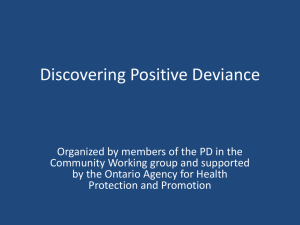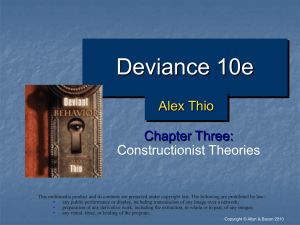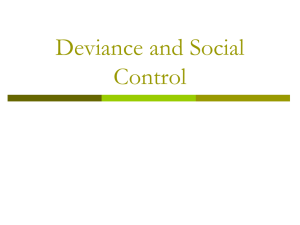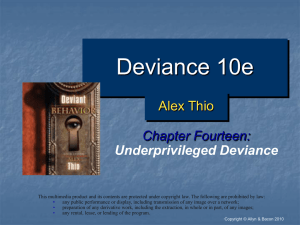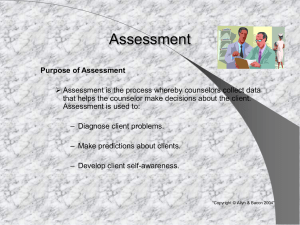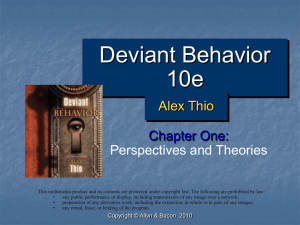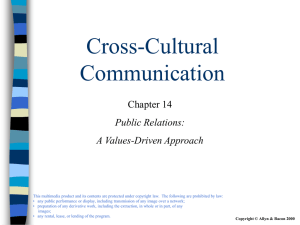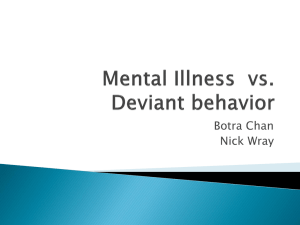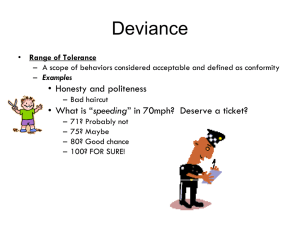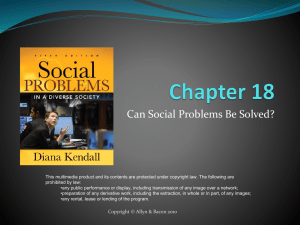Chapter 13
advertisement
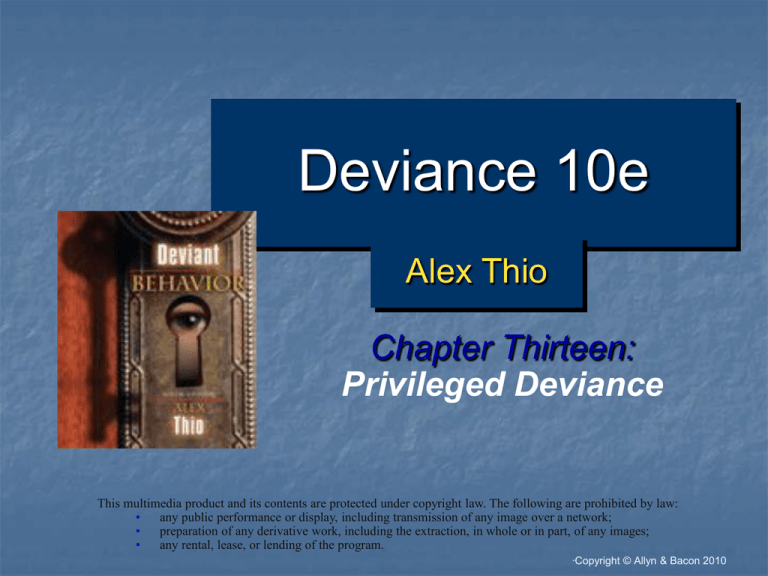
Deviance 10e Alex Thio Chapter Thirteen: Privileged Deviance This multimedia product and its contents are protected under copyright law. The following are prohibited by law: • any public performance or display, including transmission of any image over a network; • preparation of any derivative work, including the extraction, in whole or in part, of any images; • any rental, lease, or lending of the program. “ Copyright © Allyn & Bacon 2010 Introduction Privileged deviance can be divided into white-collar deviance, or corporate and occupational deviance, and governmental deviance Example: the head of Tyco Corporation stole $150 million “ Copyright © Allyn & Bacon 2010 What is White-Collar Deviance? Sutherland: crime committed by "the upper, white-collar class, which is composed of respectable, or at least respected, business and professional men." Also includes corporations participating in deviant activities “ Copyright © Allyn & Bacon 2010 Corporate Deviance 1. 2. 3. 4. Corporate deviance takes place in corporations; it is carried out for benefit of the company or an individual; the FOUR major types of deviance inlude: Deviance against employees Deviance against customers Deviance against the Government Deviance against the environment “ Copyright © Allyn & Bacon 2010 A Social Profile of Corporate Crooks In 2002 alone, corporate crooks were responsible for devaluing their companies by $530 billion and costing 162,000 jobs Most famous: Kenneth Lay of Enron; top executives at Arthur Anderson; founder of Adelphia “ Copyright © Allyn & Bacon 2010 A Social Profile of Corporate Crooks – cont. Typical illegal practices: moving corporate headquarters to avoid taxes overpaying executives stacking the Board of Directors giving money to candidates of both parties to ensure government favor and tax breaks “ Copyright © Allyn & Bacon 2010 Occupational Deviance White-collar crime committed by employees for individual gain is usually less costly than that committed by corporations, but still far more costly than street crimes It is estimated that as many as 60% of American employees may steal from their employers if the opportunity is presented Embezzlement: stealing of money; costs as much as $27.2 billion in one year (commercial banks lose five times as much to embezzlers as armed robbers). “ Copyright © Allyn & Bacon 2010 Occupational Deviance – cont. Financial frauds are very prevalent tax evasion securities fraud Deviance in the professions is those acts committed during the course of the individual's occupation medical misconduct – fee splitting, unnecessary surgery and fraudulent payment claims lawyerly lawlessness – overcharging, and intentionally causing delays in court accounting abuses – assisting clients in falsifying deductions during audits “ Copyright © Allyn & Bacon 2010 What Makes White-Collar Deviance Unique? Use of power, influence, or respectability to minimize detection Rational execution to maximize profits Non-criminal self-image Victim's unwitting cooperation Society is relatively indifferent “ Copyright © Allyn & Bacon 2010 Causes of White-Collar Deviance 1. 2. 3. Three reason why some people are more likely than other to be deviant: Stronger criminal motivation (greed is stronger than fear) Great criminal opportunity Weaker social control (lax law enforcement) “ Copyright © Allyn & Bacon 2010 Governmental Deviance Many public officials abuse their power in a variety of ways Official deviance: abuse of power by governmental officials or politicians running for office Political corruption: abuse of power for personal gain Election improprieties include the illegal or unethical means used to win elections Official violence against citizens has a long history “ Copyright © Allyn & Bacon 2010 Global Perspective: Official Corruption 1. 2. 3. Official corruption is very common around the world, and especially in poorer countries, where corruption of public officials is seen as normal Causes of official corruption: poverty large populations lack of democracy “ Copyright © Allyn & Bacon 2010 Official Ways of Neutralizing Deviance Official deviants practice “the ritual of wiggle” Continually deny that wrongdoing has occurred Ignore the deviance Accusing the accuser Promising an investigation Claim the action was necessary “ Copyright © Allyn & Bacon 2010 Causes of Governmental Deviance Abundance of ambiguous laws Complex nature of the government; lack of information (greater complexity leads to greater confusion and diminished awareness that deviance is being committed) and responsibility “ Copyright © Allyn & Bacon 2010
